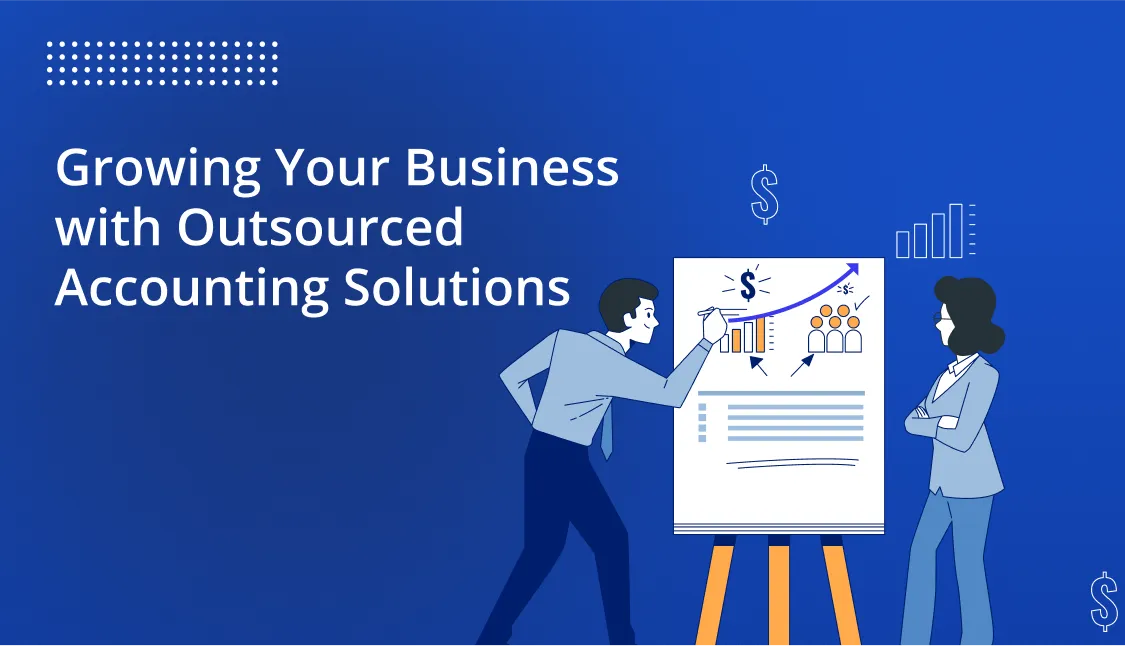Role of Accounting in Scaling
The sustainable success of any firm today heavily depends on accounting. Accurate and reasonable accounting assists in regulations that outline the reporting guidelines to the authorities and provides valuable insights for determining the future course of action & controlling the cash flow - these are important things when scaling a business. On the one side, however, the increasing complexity of business accounting needs the usage of more advanced abilities and technologies.
Challenges of In-House Accounting
Having an in-house accounting team is ideal but challenging ase:
- Allocation of Resources: A growing business must utilise its resources properly. The expense of recruiting, training and salaries to construct an internal accounting team is considerable.
- Scalability Problems: When the business expands and so do the accounting requirements. Scaling an in-house team to meet these demands is expensive and cumbersome.
- Compliance & Expertise: Regulatory requirements change often. In-house teams might have trouble keeping up with the most recent standards and laws and face compliance issues.
- Technology & Tools: Keeping up with the latest accounting software and tools requires investment. In-house teams might be behind in implementing new technologies.
Outsourced Accounting Solutions Added Benefits
Some benefits of accounting outsourcing services can help businesses scale efficiently:
Cost Efficiency
Outsourced accounting is less costly as an in-house team isn't hired, trained and managed. Businesses pay for services they want when they want them.
Scalability
Outsourced accounting solutions may scale with a company. Whether it is managing peak workloads or entering new markets, outsourcing partners can adapt their services accordingly.
Access Expertise
Outsourcing offers access to a number of professionals acquainted with accounting methods, tax laws and regulations. This ensures compliance and offers insight for strategic decisions.
Advanced Technology
Outsourcing partners generally invest in the newest accounting technologies and tools so that companies can access advanced analytics and software that would otherwise be prohibitive to apply.
Outsourcing Key Accounting Functions
Not all accounting functions must be outsourced, but several critical areas could significantly benefit from outside expertise:
- Bookkeeping: Routine tasks like data entry/reconciliations & accounts payable/receivable can be outsourced.
- Payroll Management: Payroll management requires complex calculations and tax compliance. Outsourcing assures accuracy & compliance.
- Tax Preparation & Filing: The tax regulations change often. Outsourced experts can ensure timely filing and avoid penalties.
- Financial Reporting: Producing financial statements and reports requires special knowledge. Outsourcing might deliver timely reports that support strategic decisions.
- CFO Services: Strategic functions like budgeting, forecasting and economic analysis can all benefit from outside CFOs who offer top-quality expertise without the full-time executive expense.
The Right Outsourcing Partner
The right outsourcing partner is important. Take the following factors into account:
- Experience & Expertise: Search for a partner with an established track record in the industry and in related areas for your business.
- Technology & Tools: Be sure the partner has the most recent accounting software and tools and a secure infrastructure to safeguard sensitive data.
- Scalability: The partner should be able to scale services as your small business develops.
- Communication & Support: Communication is key. The partner must create clear channels for communication and support.
- Cost/Contract Flexibility: Check out that the pricing model fits your budget and the contract enables you to adjust services if needed.
Drawbacks of Outsourced Accounting
Outsourcing offers number of benefits, but there are also risks:
- Loss of Control: Some businesses might believe they have less control over outsourced functions.
- Data Security: Sharing sensitive financial data with an outside provider might produce security risks. Make sure the provider has sufficient data protection.
- Barriers to Communication: Working with outside teams may cause communication challenges, particularly if they're in different time zones.
- Quality Concerns: The quality of work might differ between providers. It's important to check partners thoroughly.
Outsourcing Success Best Practices
To get the most from outsourcing accounting functions:
- Clear Objectives: Define goals and expectations for the outsourcing arrangement.
- Performance Metrics: Set metrics to evaluate the performance of the outsourcing partner frequently.
- Agreements of Confidentiality: Secure strong confidentiality agreements to safeguard sensitive data.
- Review & Optimise: Periodically review the arrangement to confirm it meets business requirements and optimise processes where appropriate.
Final Thoughts
Outsourcing accounting functions is a strategy for scaling up a company. Using the expertise, technology and scalability that outsourced accounting solutions offer, businesses can handle growth and remain compliant. However success is dependent upon the right partner, clear goals and clear communication. Outsourced accounting can be a boon to business growth and success if approached right.
Read Also Role of Outsourced Accounting in Managing Inventory for Manufacturing Companies



























